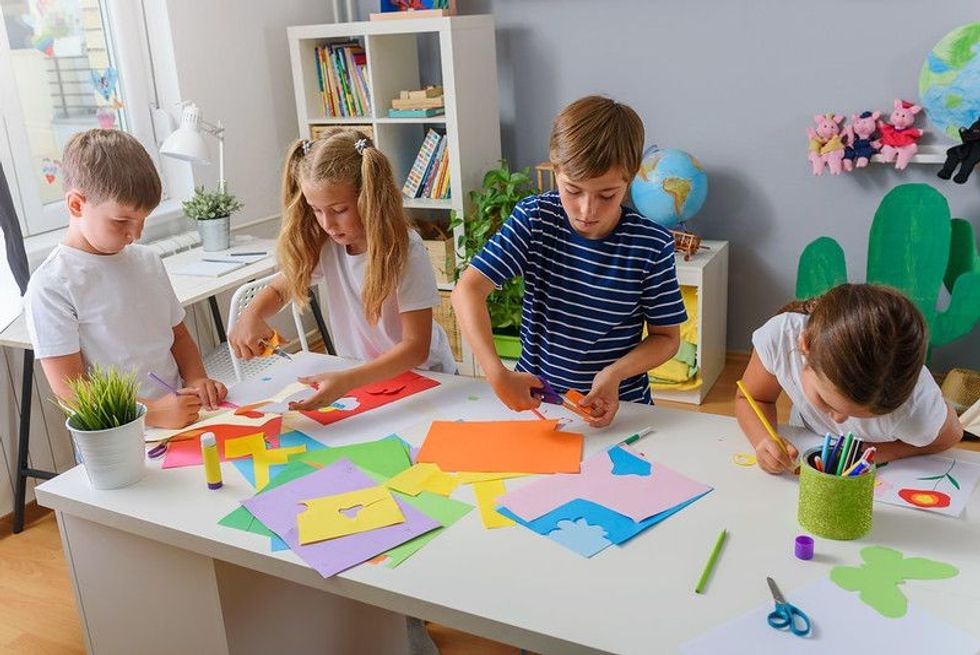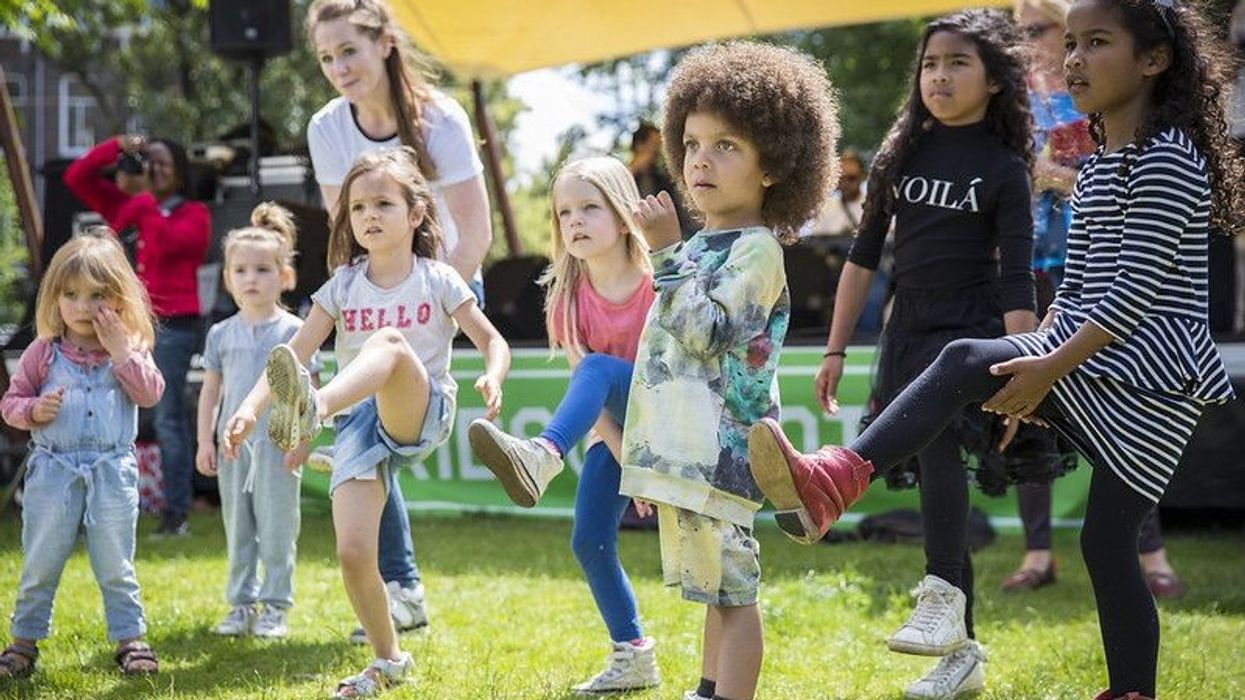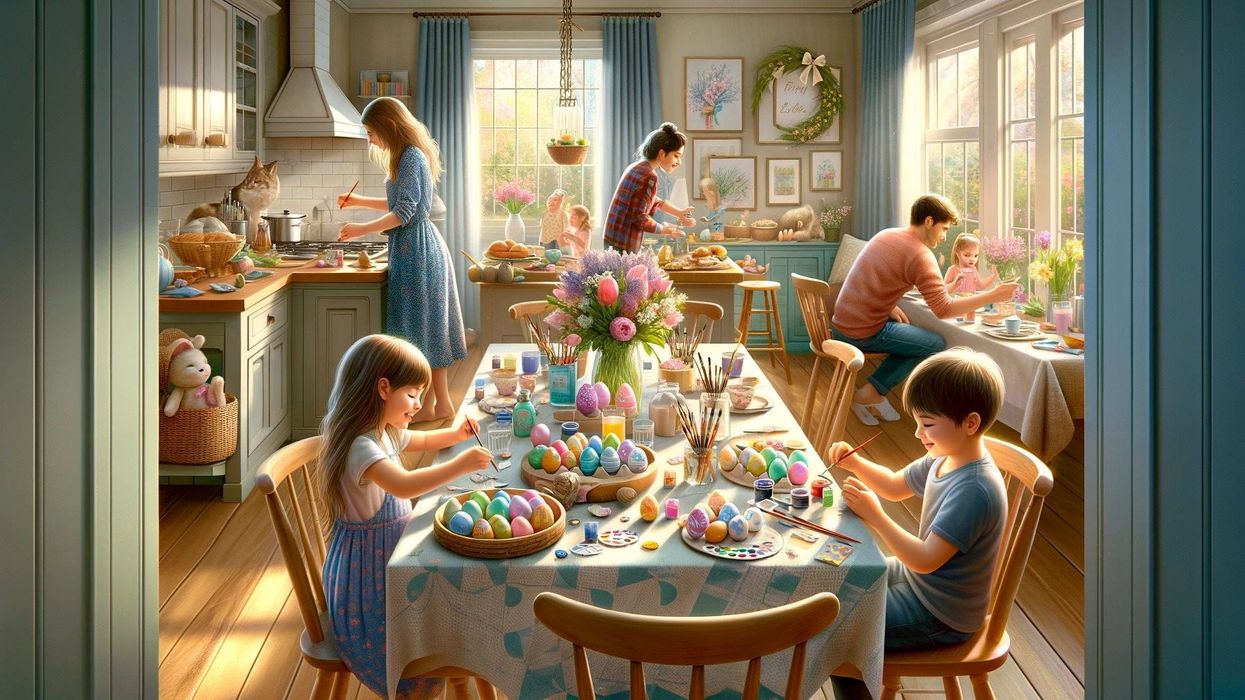Teaching our children is not just about 'school' learning. It's an opportunity to educate them in some life skills, which will help them get through teenhood and give them some useful tools for the rest of their lives.
If you can develop a growth mindset, it can help you learn from failures, be open to trying new things, and have the resilience to try and try again. It is also a hugely useful tool to help children succeed at school.
So much so that many schools are introducing growth mindset programmes to help children escape from a 'fixed' mindset and to encourage self-awareness, persistence, and practise.
Try these growth mindset activities for kids at home.
What is a growth mindset?
If you have a fixed mindset, you give up easily if something is not easy, and believe that you can't do it because, for instance, sport is 'not your thing'. You can see how limiting this could be for children in school.
They start off enjoying maths because they find it relatively easy.
Then along come fractions and they find them tricky.
Instead of working around the problem and coming up with a way to master them, they decide maths is not their thing and so all maths becomes tricky and irksome.
If you have a growth mindset, you will be able to acknowledge that maths can be hard, but will feel comfortable enough to find ways to overcome this and not get a 'mental block' with all math.
Before you start these growth mindset activities for kids, give yourselves and the children an idea of what growth mindset is by watching a video to understand the concept.
Make it positive
The language used when you adopt a growth mindset is very positive, so work with your children on switching negative statements for positive ones. Older children might like to create a poster or even a Powerpoint presentation on this growth mindset idea, while little ones might just enjoy shouting out the positive statement.
Here's some to get you started:
I will never get it right - I may find this hard but if I ask for help and keep trying I can succeed.
I'm not clever enough to do it - If I try hard and practise I can get this right.
I could never do that - I would love to do that. If I work hard and ask for help I can achieve it.
Be kind
Finding ways to be kind can help children realise that there is a lot of value in just doing something nice for someone without expecting anything in return.
For instance, activities such as offering to help someone out with their garden, sending toys and clothes to the charity shop, paying someone a compliment and so on.
Obviously, you need to be aware of social distancing rules, but there are plenty of opportunities to be kind at home to your own family, especially while we are all cooped up together. Join in with the trend for putting rainbows in the window or teddy bears for small children to see on their walk.
Or help a neighbour who is self-isolating by weeding the garden, or walking their dog.
What comes next

Helping kids to cope with a less-than-successful outcome is really important. Teach them some questions that they can ask themselves if they don't succeed as they wanted, and they will have the tools to recover from failure. So the sequence might be like this: What happened: What was your strategy? : Why did you choose this strategy?
What happened when it didn't go the way you had planned? What can you do to make it work better next time? How will you make this happen? What help do you need.
Scrunch it up
The idea behind this mindset game is to show that we can look at our mistakes in a positive way and that it is fine to have negative thoughts - it's what we do next that is important.
Get your child to write down on a piece of paper a mistake that they have made - it might be something to do with home school work, being rude to a parent, breaking something - whatever it is that they struggle with.
Then they can scrunch up the piece of paper and throw it at the wall, feeling the same way they did when they made the mistake.
They may have been cross, sad, embarrassed and so on.
Take a minute and then get them to pick up the paper, open it up and take a look at what they wrote again.
This time, they need to look at it while acknowledging that everyone makes mistakes, even when we are trying hard.
You'll need to help them with this, and talk about how they could do a better job next time and what help they might need to achieve this. Then, they can scrunch up the paper again and throw it away.
This shows that everyone makes mistakes but we can put them behind us and start again.
Combine yoga and growth mindset
Yoga is a great exercise for young people - it helps with breathing, flexibility, and mindfulness. And by attributing positive attributes of a growth mindset to each exercise, they can practise positive affirmations while practising their yoga poses.
For instance, the lunge pose is about being open-minded.
While they practise the pose, they think about how they can be open-minded enough to take on constructive criticism and to learn from it. Other affirmations, which can each be assigned one yoga pose, are: I work hard; I am creative; I am focused: I am caring, and I like to learn and discover new things.
Memory jar
If your child is a keen sportsperson, they may have a shelf full of trophies or medals. An accomplished student may have reward postcards and certificates from school.
But you can teach kids that there are lots of achievements that can be celebrated. Here's another growth mindset activity for kids.
Get a large jar and some squares of paper and encourage your child to add in the day's accomplishments. The nice thing about this is that you can also add to it - maybe you noticed them being extra kind to a younger sibling or recognised that they accepted a sanction without a lot of fuss. So open the jar every couple of days or every week, so you can acknowledge and celebrate their successes.
Learn the power of yet
Yet is a little word, and yet can make a big difference. For instance, I can't spell many words, becomes I can't spell many words YET.
I can't play the piano, becomes I can't play the piano YET.
When teaching a growth mindset, ask everyone to think of some things they feel they can't do and then add the word yet to the end of the sentence. Then you can discuss how they might make these things happen with growth mindset values - practise, persistence, believing in themselves, asking for help and so on
Find out about famous failures
Knowing that famous and successful people had to try and try again is comforting. It shows that even if you fail, you can still be successful.
Harry Potter fans would love to know for instance that JK Rowling was a struggling writer, was depressed and short of money and yet because she had a growth mindset still went on to become the bestselling author who created one of the best-loved children's characters in modern literature.
Sports fans would be amazed to know that basketball legend Michael Jordan got passed up for the varsity team at the age of 15. But instead of giving up, he pushed on, with his mum's encouragement - if he ever felt like giving up, he just pictured that team list without his name on.
A great example of a growth mindset in action.
And the rest is history! Getting them to research some of their favourite people, and be inspired by their determination to never give up is one of the most interesting growth mindset activities for kids.
Make a vision board
One of our favourite growth mindset activities for kids. It will help them use their growth mindset ideas, and keep them busy for a while.
A vision board can be filled with lovely pictures of the things you would like to do and achieve, along with inspiring phrases, and reminders of growth mindset values. Set the kids to work with some magazines to cut out, downloadable printables and images from the internet.
They can pin each to a corkboard if you have them, or stick them onto sheets of cardstock—use whatever you have to hand.









